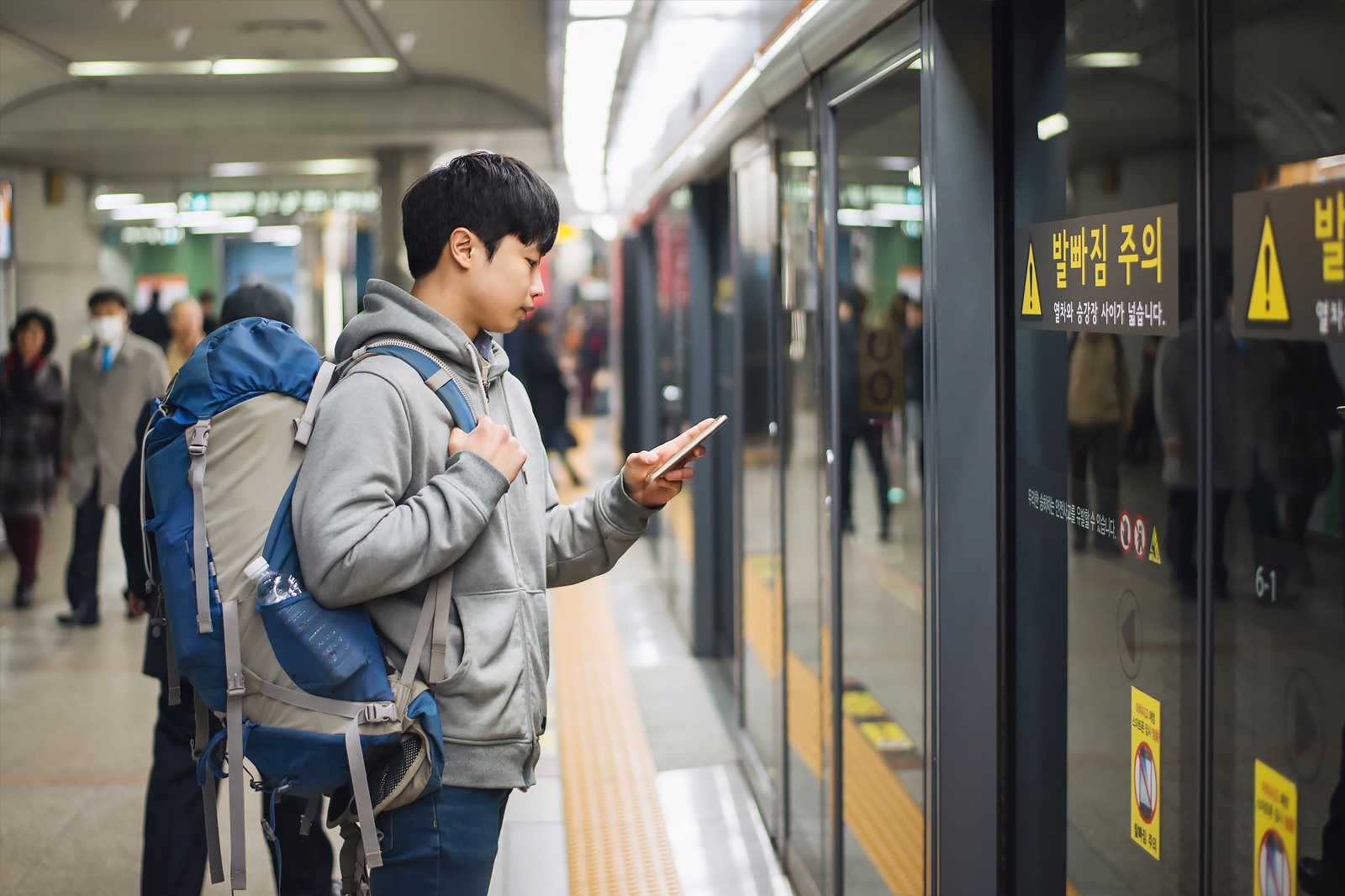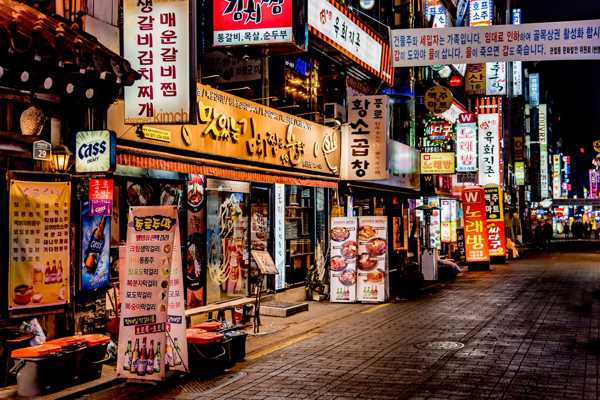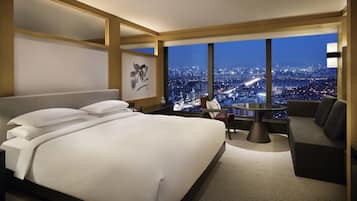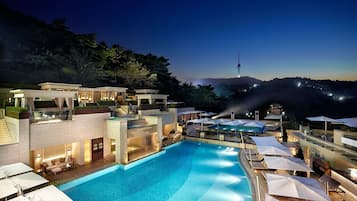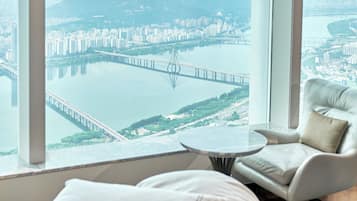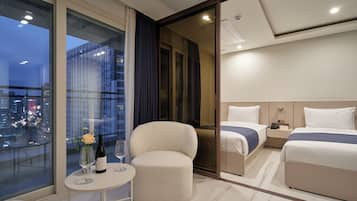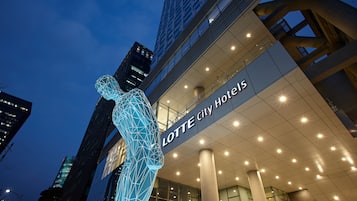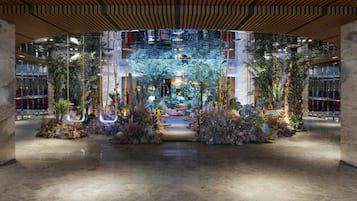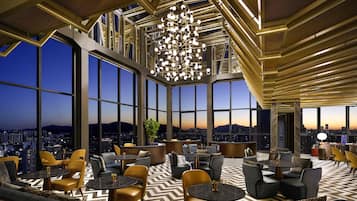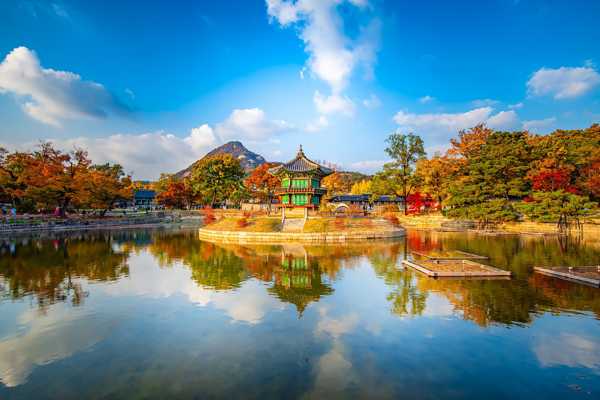Among the most common mistakes people make when visiting Seoul are breaking social norms that are unique to South Korea. A general rule of thumb for any traveller is to learn about the culture of the place you’re planning to visit.
Despite being one of Asia’s most technologically advanced cities, Seoul has a vibrant cultural legacy dating back to the age of Confucianism. Locals have a deep respect for their elders, so you’ll experience many cultural norms that prioritise anyone above your age, rank, and position. Learn more about the common mistakes through our list of things not to do on your first visit to Seoul below.
- 1
Only staying in Myeongdong or Dongdaemun
Seoul has plenty of excellent neighbourhoods

For many first-time visitors to Seoul, it’s quite easy to just stay in Myeongdong or Dongdaemun – arguably among the city's most popular neighbourhoods. However, Seoul has many unique districts worth exploring. The subway is a convenient way of getting around – you can find a station within a 10-minute walk of sightseeing spots.
If you want a feel for authentic Korean culture, we highly recommend booking a hotel in Insa-dong. You’ll be within walking distance of iconic spots like Gyeongbukgung Palace and Bukchon Hanok Village.
- 2
Skipping Seoul's natural attractions
There’s more to this city than just shopping and dining

Seoul is widely known for its excellent shopping and dining opportunities, as well as well-preserved palaces, temples, and villages. If you're craving time in the great outdoors, you're spoilt for choices.
At over 340 metres above sea level, Bugaksan Mountain (Baekaksan) is the highest peak in Seoul. Scenic trails take you through the city’s 15th-century gates and along ancient fortress walls. It takes about 2 hours to reach the top, where you can take in expansive views of Seoul and the Han River.
If you’re up for a day trip, Nami Island is a must-see just outside of Seoul. This scenic spot is very popular with couples, as it was the filming location for the 2002 K-drama series, Winter Sonata.
- 3
Talking loudly on public transport
Be considerate of other commuters

It’s common courtesy to refrain from speaking loudly when using public transport in Seoul. In fact, most Koreans aren’t shy of reprimanding you for being loud – after all, they often use their time on the subway or bus to rest after a day at work.
- 4
Using one hand to receive/give something
You’ll come across as disrespectful

A cultural norm in South Korea is using both hands when accepting something from an elder person. The same goes for giving, too. Using only one hand is considered rude and disrespectful.
This might be unfamiliar for those from western (and some Asian) countries, but it’s a nonverbal method of showing respect for your seniors and anyone above you in age, rank, or position.
- 5
Sitting on subway seats reserved for the elderly/pregnant women
Locals aren’t afraid of asking you to give up your seat

Subway trains in Seoul have several seats reserved for the disabled, elderly, and pregnant people. You can find them at the far end of each coach. Locals aren’t shy of reprimanding those who sit on these priority seats, so stick to the regular seats or stand if those are fully occupied.
- 6
Wearing shoes inside someone's home
The same goes for certain restaurants

Entering someone’s home without removing your shoes is a common mistake that people make when visiting Seoul. Many Asian households often dine, sit and sleep on the floor, so keeping it clean is a priority.
Some restaurants and teahouses in Seoul impose a no-shoe policy, so it’s always a good idea to check before entering.
- 7
Refusing a soju shot with an elder
It’s very offensive to Koreans

The drinking culture in Seoul is more about socialising than getting inebriated. If someone older offers you a shot of soju, it’s actually a gesture of friendship. Refusing it is basically a form of disrespect to that person.
If you’re not a drinker, you may opt for a non-alcoholic beverage instead. After accepting, turn your head away from the elder to drink – it’s also a sign of respect.
- 8
Eating before the eldest at the table
Always wait until he/she starts before you tuck into your meal

If you’re dining with a group in Seoul, always wait for the eldest at the table to start eating first. Koreans also don’t leave the table as soon as you’ve finished the meal – you'd have to wait until the eldest person permits you to leave.
It’s a good idea to pace yourself when enjoying a meal in South Korea, especially if you’re dining with locals.
- 9
Assuming everyone speaks English
Do learn basic Korean at the very least

While Seoul is the modern capital city of South Korea, many locals aren’t fluent in English. It’s generally not a very widely spoken language in South Korea.
However, you’ll have better luck finding a local who can speak English in main tourist areas, such as Myeongdong, Dongdaemun and Hongdae. These districts even have tourist information centres with English-speaking staff and travel brochures to help you navigate your way around the city. To be on the safe side, it’s a good idea to learn some basic phrases in Korean.
- 10
Missing out on Korean bathhouses
They’re great for overnight stays, too

Korean bathhouses or jjimjilbang are great for unwinding after a day of sightseeing in Seoul. You can find gender-segregated bathhouses, hot tubs, snack bars, outdoor pools, fitness clubs, and noraebang (karaoke rooms).
What you might not know about these 24-hour sauna rooms is that they often serve as affordable accommodation for budget-conscious travellers. Spacious sleeping quarters with sleeping mats or bunk beds are available if you’re planning to spend the night.
